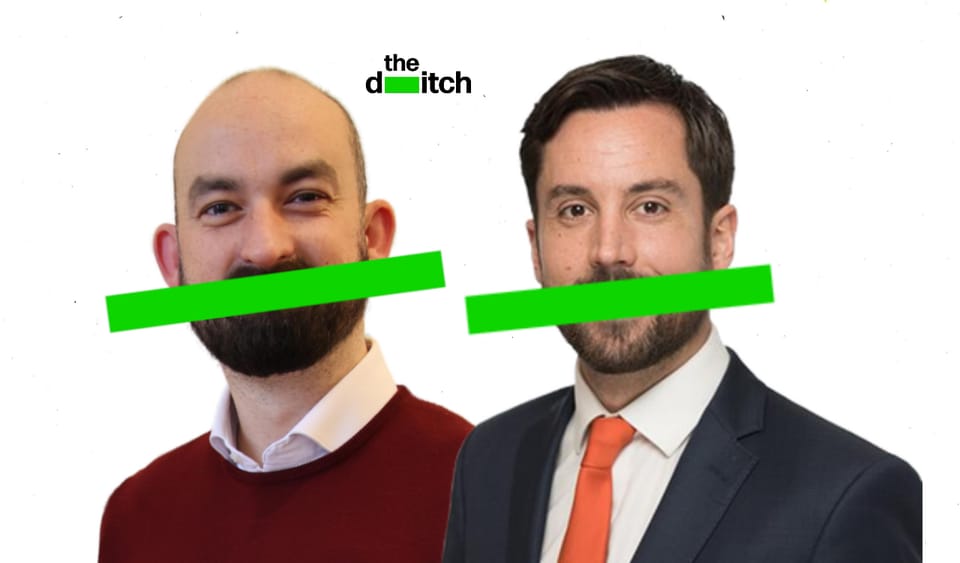Professionals who regard time in politics as just another CV entry should be considered with suspicion. "I've left a career in the public sector and before that the private sector. I'm at the age of 48 entering into politics now for the first time," said newly elected Social Democrats TD Sinéad Gibney on RTÉ Upfront. "I have no intention of sitting on the opposition benches for my entire political career. We are a group of very committed experts in our different fields who are coming together and trying to offer the electorate something new."
With this professional attitude to politics, private sector experience is treated, by definition, as conferring one with an interesting perspective on politics. Its proponents are highly qualified and just want to get things done. It sees governance as a technical challenge to be solved by competent experts. It regards the task of elected officials as primarily administrative.
Without treating politics as more than the next rung on one’s career ladder, these politicians – who, like Gibney, are sometimes well-meaning and do genuinely wish to help – will just perpetuate the system they claim to want to change. You cannot solve social problems by importing a mindset from the corporate world, an environment designed to suppress class consciousness.
The reduction of class conflict and inequality to mere managerial problems already has a name: neoliberalism. For more than 40 years, since the elections of Margaret Thatcher and Ronald Reagan, this project has achieved little beyond transferring wealth upwards by eroding the welfare state – with government becoming an HR department tasked with containing social problems, not solving them
Do your public duty, get your job done, and get out
Before his stint as minister for housing – during which he pushed exorbitantly priced co-living spaces as a solution to the housing crisis, reduced building standards for rental properties and tried to massage rising homeless figures – Eoghan Murphy discussed the rise of TDs who see public service as a short-term career move.
"The frustration here is that people don't understand there are new TDs in Dáil Éireann who are interested in policy, who are interested in doing things better, are interested in learning from the mistakes of the past, not interested in hanging around for 20 years,” he said in a 2015 interview with The Journal. “Go in, do your public duty, get your job done and get out."
Murphy recently published a memoir, Running From Office: Confessions of Ambition and Failure in Politics, documenting his time as an elected representative and the toll it took on his physical and emotional wellbeing. In an excerpt published in the Sunday Independent, Murphy described how then taoiseach Leo Varadkar, himself now departed from politics, deliberated over ministerial appointments – and how he yielded to careerist impulses once he saw an opportunity to hold a position in cabinet.
“I didn't care what promises had been made,” he wrote. “I cared about recognition – about having my own department, my own seat at the cabinet table and everything that came with that.”
This prioritisation of himself over the public good was, for Murphy, atypical of his previous conduct. “In my first years in the Dáil it wasn’t about advancement at all, not like it had been for others,” he wrote. “It was about the genuine privilege of being there as a representative of the people, of standing up in the chamber and speaking truth to power. All that fluffy West Wing stuff I had binged on at the start of the box-set era. So where the hell had this come from?”
This ignores the obvious: his ruthlessness was the logical conclusion of the approach to politics he spoke of in his interview with The Journal. In this regard, a memoir isn't a cathartic break from a previous life – it's a calculated career move consistent with his behaviour as a politician. Three-hundred-odd pages devoted to the Men's Mental Health™ of his plight will likely help deflect awkward questions about his poor performance as housing minister.
He’ll be fine. Others under the age of 40 however now live with the cost of his personal aspirations.
A return on investment
Using public office for personal gain is nothing new for a country that produced Charlie Haughey. Politicians emerge with backgrounds in areas like corporate law, business strategy and public relations. Many – such as the late former taoiseach John Bruton – see their time in office as preparation for lucrative positions on boards and in consulting roles. Sometimes they alternate between both worlds, as Noel Rock attempted in the recent general election, standing for Fine Gael.
Others, like independent TD Eoin Hayes, are more secretive. The Social Democrats suspended him for giving false statements about shares he received while working for Palantir. He said he'd sold them before entering politics, when he'd retained them until after he was elected. This wasn't an oversight – it was an attempt to maintain connections to both worlds until it was untenable.
Hayes’s campaign marketed him as a man who would bring private sector efficiency to Leinster House. “I'm a small business owner,” he said, in one clip posted on the Social Democrats’ X account last month. “Before I entered politics, I was in the private sector for a long time. I know what it means to make sure that every cent counts. To make sure that we have investment that actually generates returns.”
We now know what returns Hayes generated in recent years – €199,000 from his partial ownership of a company that provides AI technology to the Israeli Defense Forces, sent to his bank account as both Hayes and his party issued statements condemning genocide in Gaza.
When confronted about his hypocrisy, Hayes deflected: “I think it’s important to people on where I stand on Gaza. On what I stand on Israel. And I have been absolutely unequivocal on that. And divested entirely from the shareholding of a company that I disagreed with.” His response was typical of the behaviours promoted by the corporate culture from which he emerged – where values are assets to be managed, positions to be adopted and discarded according to what the job demands.
‘We don't need credentialed professionals applying technical solutions’
At best these professional politicians offer modest reforms that avoid any challenge to market forces. These policies serve as a form of class conciliation, much like how offices use foosball tables and free beer to mask their underlying power dynamics. In both cases a fundamental contradiction of capitalism – workers' alienation from their labour – is managed through superficial accommodations.
Some of these politicians are more accommodating to workers than others – the Social Democrats have different priorities to Fine Gael – but both ultimately see their role as preserving the existing order. Eoghan Murphy, Eoin Hayes: two faces of a professional political class that can’t tell the difference between management and leadership.
Ireland's social problems won't be solved through private sector know-how. We don't need credentialed professionals applying technical solutions. We need people with clear principles and the courage to challenge the capitalist class. Even at the cost of their own career advancement.


